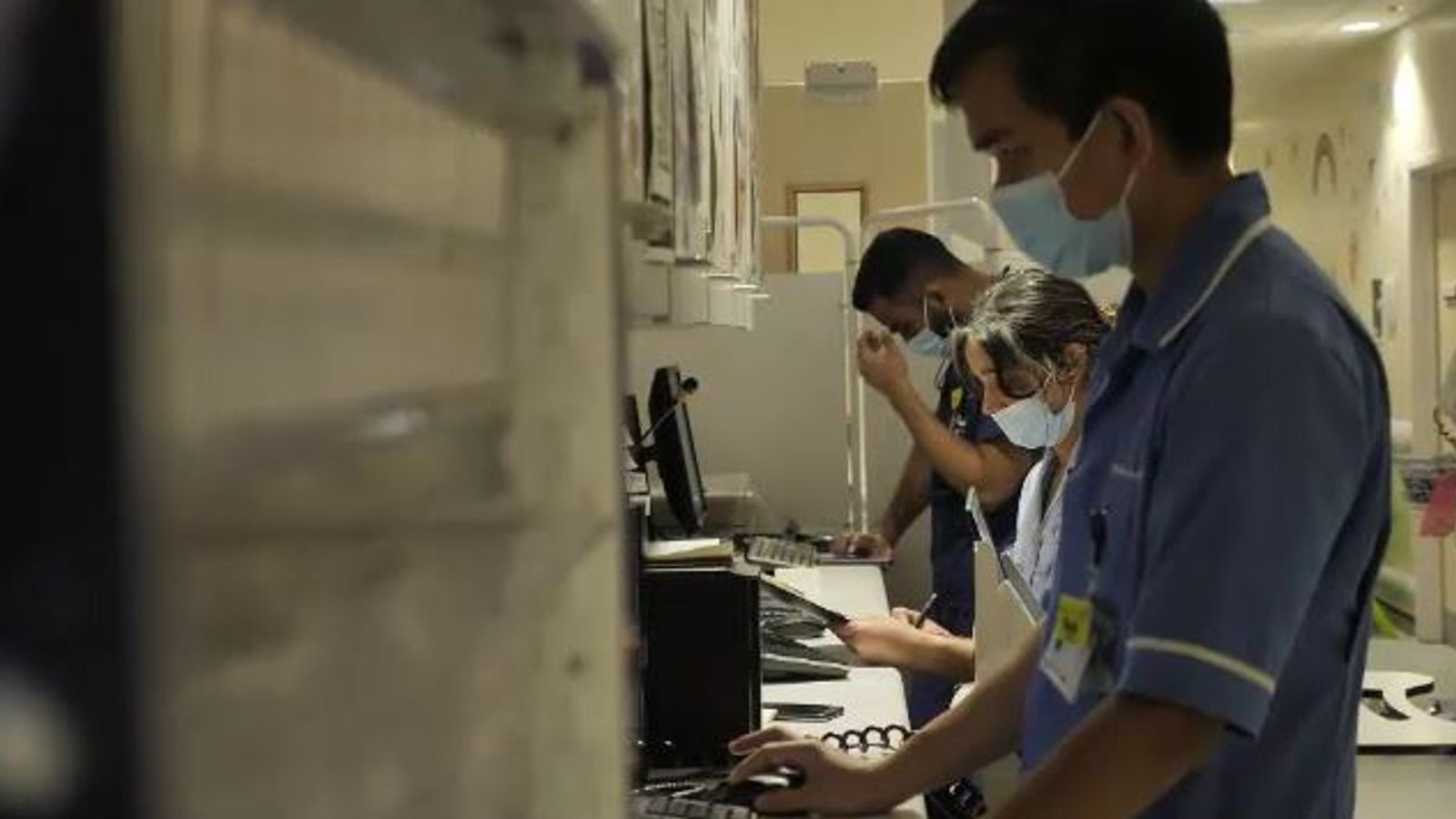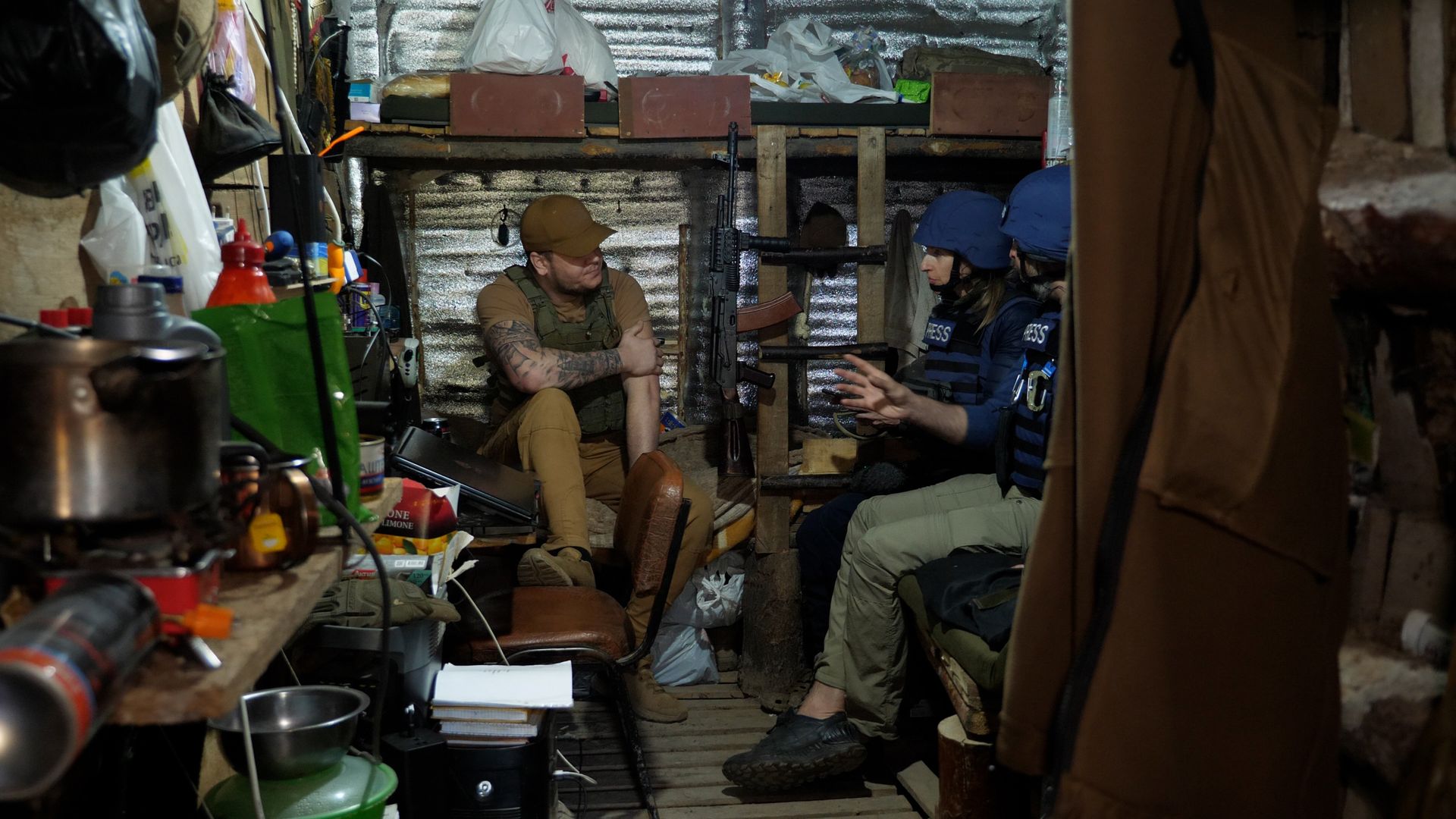At Barnet Hospital new winter pressures pile onto a workforce that has already weathered so many storms.
Outside, a woman arriving by ambulance with breathing difficulties is a reminder of crises past.
Inside the Emergency Department, she is wheeled past a man who has slipped on the ice and fractured several bones in his leg.
Beyond the packed adult waiting room, there is a door separating the paediatric emergency department. Here it is even busier, and a security guard sits at the entrance.
He’s been put in place because the record-long waits for treatment here mean sometimes parents of sick children are taking out their frustration on the staff.
Sat in the waiting room is Myriam Dimmock with her distressed son Max. He has high temperatures, a sore throat and is coughing. A rash covers his face and body.
Myriam is concerned about Strep A and felt she had no choice but to come to A&E. She says: “We tried to call the GP and they said send pictures, but they haven’t called back.
“When I came in (to A&E) it was heaving there wasn’t even one chair. We waited an hour and a half for triage, and we’ll probably be hours waiting for the doctor.”
It later turned out that Max was okay to be discharged, but the concern is that with larger numbers of parents using the emergency services, some very sick children could get missed.
Nineteen-month-old-Jahmaal and his mum Melissa Hislop sit in one of the side rooms.
He has chronic lung problems from premature birth and when sick he needs monitoring and access to oxygen.
Jehmaal began vomiting the night before, but Melissa was weary about coming to the hospital because of the scenes she’d experienced when she brought him in two weeks earlier.
She says: “Parents were sitting on the floor with children. Every side room, the overflow room were all full. So just chaotic scenes, babies crying and parents getting frustrated.
“It’s really sad to see because they (the medics) really do work hard, and it’s not nice when you see parents shouting at them.”
Advanced Clininal Practitioner, Samantha Milton says: “The wait times are going up – frustration is then towards the nurses some of the language used is very unkind and hurtful towards the nurses, which is very upsetting.”
She says the wait times are being caused by over-cautious parents, especially those worried about Strep A.
Ms Milton says: “There are a lot of worried parents with well children who could self-care at home if they used NHS advice or Healthier Together Advice.”
Currently, the Trust is hitting the under-four-hour wait target in just 65% of cases, below the national average of 69%. Staff at the hospital didn’t vote in enough numbers to trigger a nursing strike – but Ms Milton supports it.
She says: “All we want to do is deliver high-quality care to children and their families and due to the really high pressures we’re not really able to do that. Nurses are frustrated that they are not able to do the job they want to do.”
Consultant Paediatrician in the Emergency Department Dr Robert Stellman told Sky News: “The NHS doesn’t have nearly as many nurses or doctors as it is supposed to have. That’s beyond debate at the moment. And that means our amazing nurses who are in place are often doing the jobs of several people under immense pressure. I couldn’t do their job.
“I think the one way the public can really help us to look after them is to remember when they come to the emergency department, they will face queues and long uncomfortable waits – but that’s not the fault of the nurses and doctors looking after you. We need their kindness and support to help us look after them.”
With regards to Group A Streptococcus, Dr Stellman says it is important for patients to know that it is not a new disease, and it is not yet clear that the numbers are radically different from previous outbreaks.
Please use Chrome browser for a more accessible video player
He adds: “The key message to parents is the same common sense applies – so if your child has a sore throat, a fever, a rash, a runny nose, but for the most part they look pretty well to you, they are for the most part playful, active and taking fluids reasonably well, then we’d direct people to really useful resources like the NHS website and the healthier together website.
“If the parents are worried, they see the features of scarlet fever which are described on those websites and then it’s probably sensible that they try to speak to 111 or a GP because it generally does best when treated with antibiotics.
Read more:
NHS staff shortages led to 30,000 cancelled operations last year
Ambulance hospital handover delays hit new high in England
“But for those parents who are worried their child is seriously ill, our advice hasn’t changed. Your local emergency department will want you to bring your child in quickly.”
As we are conducting the interview, a man runs into the room in distress, carrying a floppy child in his arms, a deep purple rash visible down the child’s leg.
And so, it is back to work for the medics.






